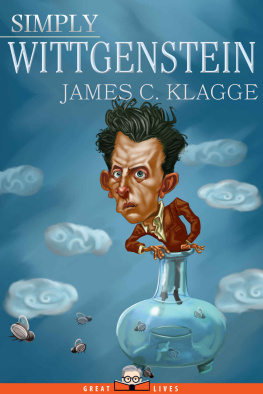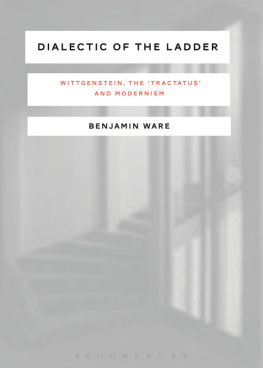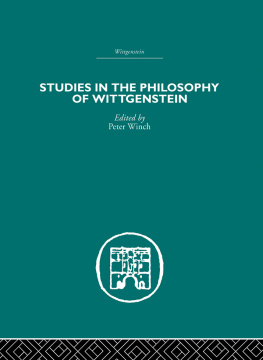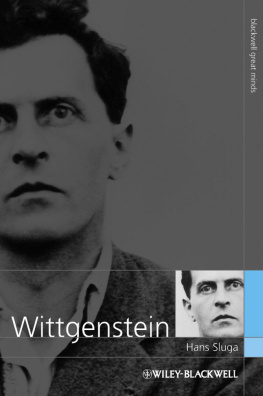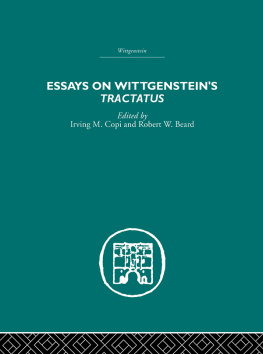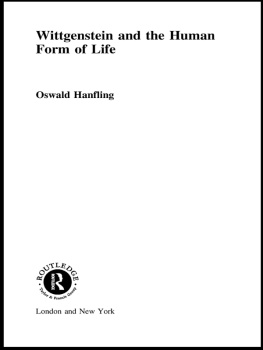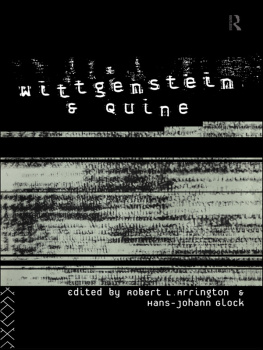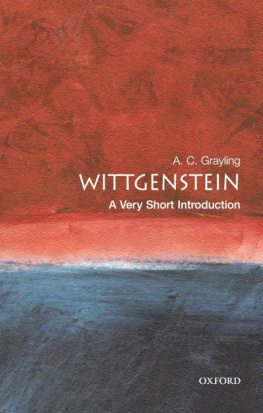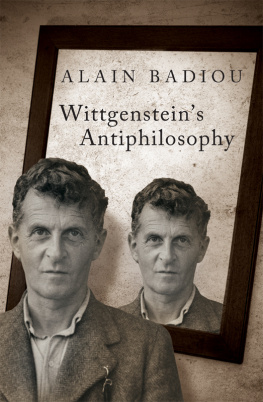BEYOND THE TRACTATUS WARS
Over fifteen years have passed since Cora Diamond and James Conant turned Wittgenstein scholarship upside down with the program of resolute reading, and ten years since this reading was crystallized in the major collection The New Wittgenstein. This approach remains at the center of the debate about Wittgenstein and his philosophy, and this book draws together the latest thinking of the worlds leading Tractatarian scholars and promising newcomers. Showcasing one paper alternately from each camp, Beyond the Tractatus Wars pairs newly commissioned papers addressing differing views on how to understand early Wittgenstein, providing for the first time an arena in which the debate between strong resolutists, mild resolutists, and elucidatory readers of the book can really take place. The collection includes famous samizdat essays by Warren Goldfarb and Roger White that are finally seeing the light of day.
Rupert Read is Reader in Philosophy at the University of East Anglia in the UK.
Matthew A. Lavery is Director of the Learning Center at Adelphi University in the US.
BEYOND THE
TRACTATUS WARS
The New Wittgenstein Debate
Edited by Rupert Read
and Matthew A. Lavery
First published 2011
by Routledge
711 Third Avenue, New York, NY 10017
Simultaneously published in the UK
by Routledge
2 Park Square, Milton Park, Abingdon, Oxon OX14 4RN
Routledge is an imprint of the Taylor & Francis Group, an informa business
Editorial matter 2011 Taylor & Francis; individual chapters, respective contributors
The right of the Editors and Contributors to be identified as authors of this work has been asserted by them in accordance with sections 77 and 78 of the Copyright, Designs and Patents Act 1988.
All rights reserved. No part of this book may be reprinted or reproduced or utilised in any form or by any electronic, mechanical, or other means, now known or hereafter invented, including photocopying and recording, or in any information storage or retrieval system, without permission in writing from the publishers.
Trademark Notice: Product or corporate names may be trademarks or registered trademarks, and are used only for identification and explanation without intent to infringe.
Library of Congress Cataloging-in-Publication Data
Beyond the Tractatus wars: the new Wittgenstein debate / edited by Rupert Read and Matthew A. Lavery.
p. cm.
1. Wittgenstein, Ludwig, 18891951. Tractatus logico-philosophicus.
I. Read, Rupert J., 1966 II. Lavery, Matthew A.
B3376.W563T732158 2011
192dc22 2010047956
ISBN: 9780415874397 (hbk)
ISBN: 9780415874403 (pbk)
ISBN: 9780203816059 (ebk)
ACKNOWLEDGMENTS
Many thanks are due to Nadine Cipa for her help in organizing the early push to produce this book, (specifically) the philosophy division of (in general) Routledge for their heroic patience during its compilation, Nicholas LaRousse for his help in editing and compiling the manuscript, and an anonymous referee for helpful comments that have improved the book.
Matt would like to thank Kimberly, Keeghan, Shea, and Flynn, for the occasional restful night during the books completion, and David OConnor of Seton Hall University for inspiring, perhaps unbeknownst to him, an interest in Wittgenstein that has persisted.
Rupert wishes to thank Juliette Harkin, for being there.
NOTES ON CONTRIBUTORS
Silver Bronzo is a doctoral candidate in Philosophy at the University of Chicago in the US.
James Conant is Chester D. Tripp Professor of Humanities, Professor of Philosophy, and Professor in the College at the University of Chicago in the US.
Ed Dain was recently Collegiate Assistant Professor and Harper-Schmidt Fellow in the Humanities at the University of Chicago in the US. From September 2011, he will be Assistant Professor of Philosophy at Providence College in the US.
Rob Deans is at Cambridge Theological Federation in the UK.
Warren Goldfarb is Walter Beverly Pearson Professor of Modern Mathematics and Mathematical Logic in the Department of Philosophy at Harvard University in the US.
Oskari Kuusela is Lecturer in Philosophy at the University of East Anglia in the UK.
Matthew A. Lavery is Director of the Learning Center at Adelphi University in the US.
A.W. Moore is Professor of Philosophy and Lecturer in Philosophy at the University of Oxford in the UK.
Rupert Read is Reader in Philosophy at the University of East Anglia in the UK.
Peter Sullivan is Professor of Philosophy at the University of Stirling in the UK.
Roger M. White is a Senior Fellow in Philosophy at the University of Leeds in the UK.
NOTE ON TRANSLATIONS
In this book, authors draw English text from either published versions of the Tractatus, or from translations of their own. When they believe it necessary, to avoid confusion or to note possible concern about differences between translations, they note the source.
INTRODUCTION
Matthew A. Lavery and Rupert Read
This book is intended to provide the reader with an overview of the general themes of the most recent phase of Wittgenstein research, the New Wittgenstein debate, which takes its name from the title of a book published by Routledge more than a decade ago, in 2000. In some obvious ways this book serves as a sequel to that; they share some contributors, considerable references to frequently the same texts, and much philosophical disposition. In some important ways, however, its purpose is divergent: The New Wittgenstein was concerned in general with laying out the basics of and applications of resolutismthe reading of Wittgensteins corpus emphasizing a therapeutic continuity between what are traditionally seen as his early and late periods. It was essentially a philosophical coming out party for the viability of a resolute approach, for the light that resolutism could shed on a host of philosophical themes (like politics, private language, methodology, etc.) previously understood almost solely from a standard viewpoint. While traces of this project clearly remain here, resolutisms potential viability is no longer questioned; in fact it is even assumed in some circles, and so this book (which, unlike The New Wittgenstein, tends to focus somewhat more singlemindedly on the Tractatus) allows that reading to bear its own fruit by revealing the nuances, internal conflicts, and sometimes opposing further commitments of now not-quite-so-new readings of Wittgenstein. (And this book brings together also a few of those whom resolute readers regard as their most perceptive, important, and sympathetic critics: namely, Roger White, Peter Sullivan, and Adrian Moore.) Thus we aim to be part of a movement beyond the Tractatus Wars of the last decade and a half, and into a new phase of (1) development of the resolute, therapeutic approach, and (2) genuinely productive engagement with genuinely engaged detractors or constructive critics of that approach.
Warren Goldfarb begins this effort by acknowledging the same indebtedness to the early manoeuvres of resolutists and offering an impressive overview of the landscape in which they maneuvered, in Das berwinden: Anti-Metaphysical Readings of Wittgensteins Tractatus. This long-awaited paper, which created a sensation in one of the key moments in the public emergence, lionization, and contestation of the new Wittgenstein approachthe Wittgenstein congress at Kirchberg in summer 2001, on the fiftieth anniversary of Wittgensteins death outlines the terrain by laying out the essential claims about nonsense (perhaps the
Next page


